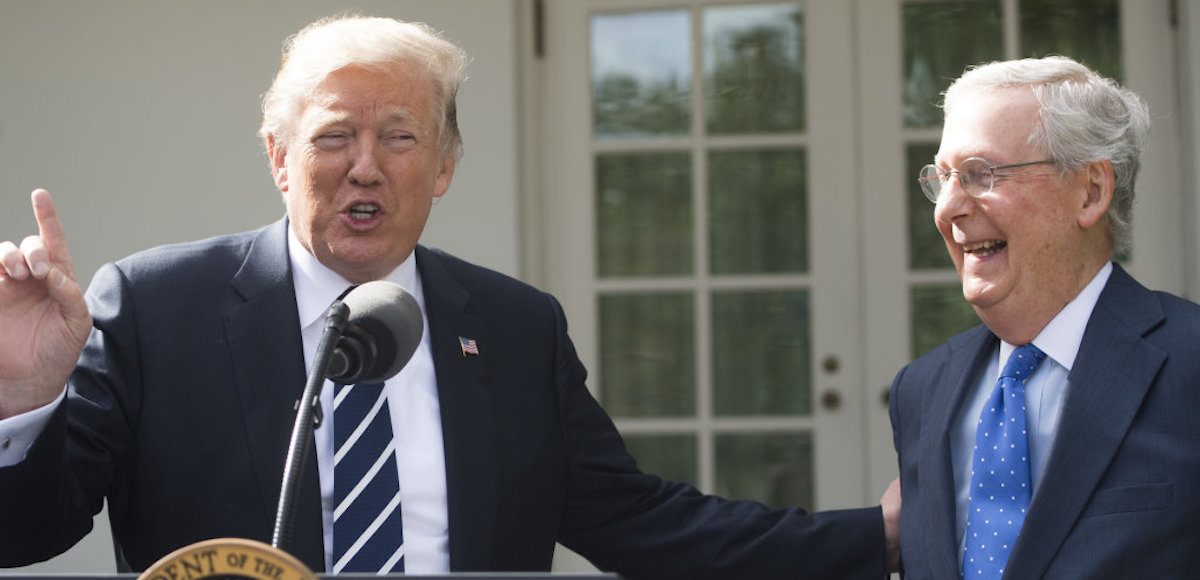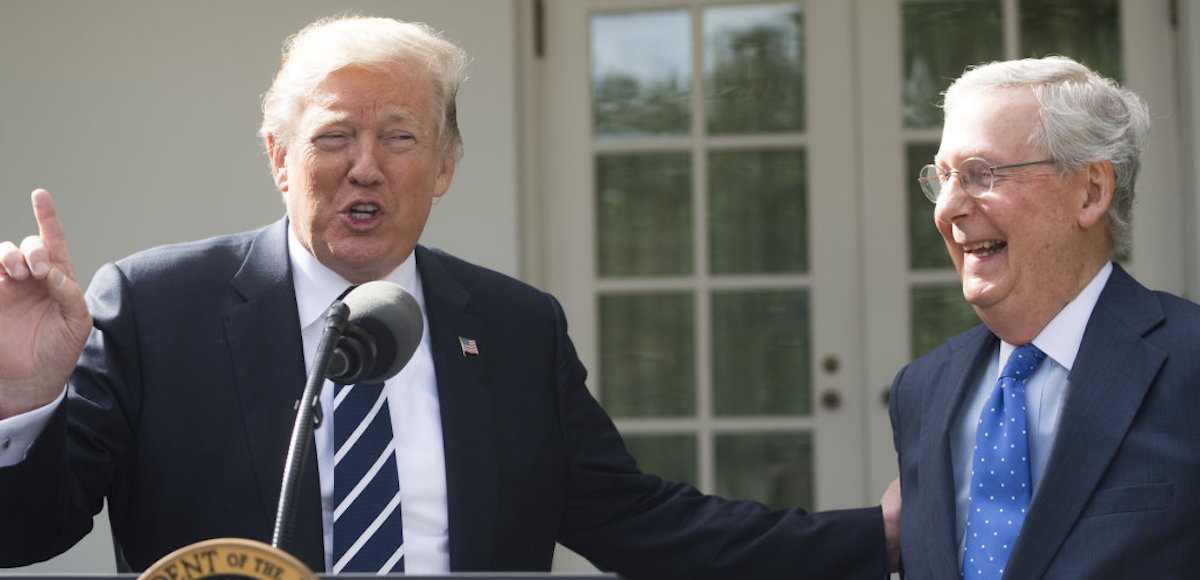
With Leader McConnell’s Help, President Trump Has Notched Two Records in Two Years for Most Federal Appeals Judges Appointed

President Donald Trump speaks to the press alongside Senate Majority Leader Mitch McConnell (R), Republican of Kentucky, in the Rose Garden of the White House in Washington, DC, October 16, 2017. (Photo: Reuters)
On September 4, hearings on the confirmation of Brett Kavanaugh to the U.S. Supreme Court (SCOTUS) will begin in the U.S. Senate. Judiciary Committee Chairman Chuck Grassley, R-Ia., made it clear he intends to push forward with the nomination.
In July, the president nominated Judge Kavanaugh to replace Justice Anthony Kennedy, the Court’s traditional swing vote who announced in June he would retire, effective July 31, 2018. With the ideological lean of the Court at stake, it will justifiably receive intense media coverage.
Judge Kavanaugh, 53, serves on the powerful U.S. Court of Appeals for the District of Columbia Circuit. If confirmed, he would be the second-year president’s second appointment to the nation’s highest court.
But little attention has been paid to the judicial branch’s down-ballot equivalent.
There are 13 appellate courts that sit below the U.S. Supreme Court, the U.S. Courts of Appeals. The nation’s second-highest court will hear controversial cases on immigration, abortion, religious freedom, and other issues that will have a significant impact on public policy and the president’s legacy.
The 94 federal judicial districts are organized into 12 regional circuits, each of which has a court of appeals. The 13th is the Court of Appeals for the Federal Circuit, which has nationwide jurisdiction to hear appeals in specialized cases.
President Donald Trump and Senate Majority Leader Mitch McConnell, R-Kty., have been reshaping these federal courts.
Until this week, they had pushed through 24 federal appeals court judge confirmations, already the most for a second-year presidency. On Thursday, the U.S. Senate confirmed the nominations of Julius Ness Richardson (81 – 8) and A. Marvin Quattlebaum Jr. (62 – 28), both for the U.S. Court of Appeals for the 4th Circuit.
With those two confirmations on Thursday, President Trump and Leader McConnell have pushed through 26 federal appeals court judge confirmations.
It’s two more than last year’s record and the highest number for a second-year presidency.
For nearly two years, the pace of the overhaul has been relatively consistent.
On December 14, 2017, President Trump and Leader McConnell set a record for the most federal appeals judges confirmed during the first year of a presidency. The U.S. Senate confirmed the 12th nominee that day, breaking the previous record held jointly by Presidents Richard M. Nixon and John F. Kennedy.
There are 179 judgeships for the U.S. Courts of Appeals. Those 26 appointments already account for roughly 15%.
Naturally, the balance of power in one branch of government will determine the balance of power in another. The battleground for the House of Representatives has received more media attention, but it’s far less likely the Democrats take control of the upper chamber in November.
There are 11 vacancies left to fill. If Leader McConnell is still at the helm, the Trump Administration could appoint as much as 21% of the U.S. Courts of Appeals.
People’s Pundit Daily (PPD) has also cross-referenced important and controversial cases to demonstrate the real-world impact these appointments can have on public policy. The results of our findings will be published in a follow-up article in this series.








RancidHoglitosis / August 18, 2018
@DigiVorr
/